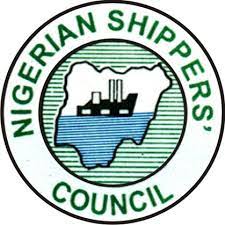NEWS
Community Urges Nwifuru against Demarcation, Creating Autonomous Community for Ezza

From Sylvia Udegbunam, Enugu
The people of Effium autonomous community in Ohaukwu local governmnet area of Ebonyi State have rejected the demarcation of land and creation of autonomus community by Govenor Francis to non-native Ezza people in Effium.This was disclosed yesterday during a world press conference held in Abakaliki, the Ebonyi State capital.
President General of Effium Town Union, Agena James, who briefed journalists, said the renaming of parts of Effium land with non-native names and creating autonomous communities for the Ezza people undermines the authority of Effium traditional rulers and disrespects to their cultural identity. Agena said, “We welcome you all to this important press conference, convened on behalf of the Effium people under the aegis of the Effium Town Union. This gathering has become necessary in light of recent pronouncements and actions by the government of Ebonyi State regarding the Effium crises, which threaten the peace, unity and heritage of our community.”We, the Effium people, wish to categorically state our vehement opposition to the proposals announced by the Governor of Ebonyi State, His Excellency Rt. Hon. Francis Ogbonna Nwifuru, regarding the demarcation of Effium land to cede a portion to the Ezza people.”These proposals, which also include the creation of two autonomous communities for the Ezza people, the renaming of the area to be ceded with a non-native name, and the reorganization and renaming of electoral wards, are provocative, unjust, and counterproductive to the ongoing peace efforts in our community”, he said.The Effium Town Union President, Agena James further disclosed the position and grievances of the Effium people.”Forceful Seizure of Effium Land; Effium land is the ancestral heritage of the Effium people. The Ezza people historically came to Effium as settlers, and their presence in our community does not grant them co-ownership of our land. The proposed demarcation and ceding of our land to the Ezza people amount to a forceful seizure of our ancestral land, which we will never accept. This action is unjust and undermines the sanctity of our heritage.”Rewarding Crisis and Violence. The Ezza people have been at the centre of the crisis in Effium, which has resulted in the loss of countless lives and properties worth billions of naira. By proposing to allocate land to the Ezza people and creating autonomous communities for them, the government is inadvertently rewarding them for orchestrating this crisis. This sets a dangerous precedent, as it signals that violence and aggression can be used to achieve political and territorial gains.”Neglect and Desecration of Traditional Institutions. Effium has a rich cultural and traditional heritage that has been safeguarded by our traditional institutions for centuries. The proposals by the Governor neglect and desecrate these institutions by disregarding the historical and cultural significance of Effium land. Renaming parts of our land with non-native names and creating autonomous communities for the Ezza people undermines the authority of our traditional rulers and disrespects our cultural identity.“Counterproductive to Peace Efforts. The Governor’s proposals are counterintuitive to the ongoing peace efforts in Effium. They lack fairness, equity, and justice, which are essential ingredients for lasting peace. Rather than fostering reconciliation and harmony, these actions will create chaos, confusion, and exacerbate the crisis, leading to further instability and unrest.”Disruption of Political Structures. The reorganization and renaming of electoral wards as part of the proposed actions disrupt the political structure of Effium and alienate the Effium people. Such actions are provocative and will only deepen divisions within the community.He further made appeal to the governor to put a stop to the action.”On behalf of the Effium people, we make the following appeals to His Excellency, the Governor of Ebonyi State: Halt the Proposed Actions: We urge the Governor to immediately halt the proposed demarcation of Effium land, the creation of autonomous communities for the Ezza people, and the reorganization and renaming of electoral wards.”Withhold Assent to the Bill: We appeal to the Governor to withhold assent to the bill passed by the State House of Assembly, which seeks to give legal effect to these proposals.”Conduct Wider Consultation: We call on the Governor to engage in broader consultations with all stakeholders, including representatives of the Effium people, the Ezza people, traditional rulers, and other settlers in the community. This public hearing will ensure that any resolution reached is fair, equitable, and sustainable.”Adopt Inclusive Peacebuilding Measures: We urge the government to prioritize inclusive peacebuilding measures that address the root causes of the crisis. Peace cannot be imposed through unilateral actions; it must be negotiated through dialogue, mutual understanding, and compromise.He said the people of Effium were committed to peace while calling on the international community for intervention.”The Effium people remain committed to peace, coexistence, and the development of our community. We believe that true peace can only be achieved through fairness, equity, and justice. We call on the government of Ebonyi State to act as an impartial mediator and work towards a resolution that respects the rights and heritage of all parties involved.”We also appeal to the global community, human rights organizations, and all well-meaning individuals to intervene in this matter and ensure that justice is upheld. The proposed actions by the Ebonyi State Government threaten to destabilize our community further and must be addressed with urgency”, he said.
NEWS
2,000 Applicants Jostle for 350 Approved Employment at FUL

From Joseph Amedu, Lokoja
No fewer than 2,000 applicants are jostling for 350 approved employment at the Federal University, LokojaThe Vice Chancellor of the University, Professor Olayemi Akinwumi who disclosed this while speaking with journalists in Lokoja on Thursday, said that the approved employment by the federal government is for 2024 allocation.
He disclosed that the employment opportunity of 350 personnel are divided into academic and none-academic positions of which recruitment interview is ongoingProfessor Akinwumi told newsmen that the process started two years ago before the final permission granted the institution to employ. According to him, the approved allocation for academic staff includes 45 Professors, 14 Readers or Associate Professors, and 60 Senior Lecturers as well as few other Graduate Assistants.The VC disclosed that the federal government also granted permission for the university to employ 89 none-academic personnel as well as one Chief Health Officer and eight Medical PersonnelHe promised level play ground for all applicants taking part in the ongoing recruitment interview.”We have given room for open door in the conduct of the interview and working strictly with the guidelines and rules laid down by the federal government” Professor Akinwumi said.The VC further told newsmen that the university currently have 12 Faculties and established new courses such as Medicine, Nursing Science, Pharmacy, Law, Agriculture, and Engineering Programmes among others.NEWS
NUJ Pushes for Media Enhancement Bill, Health Insurance for Journalists

The Nigeria Union of Journalists (NUJ) said it is working towards the passage of a Media Enhancement Bill to improve welfare packages for journalists across the country.
NUJ President, Alhassan Yahaya disclosed this on Wednesday during a media interactive forum organised by the Kano State Council of the union in collaboration with the State Ministry for Information and Internal Affairs in Kano.
The high-level media interactive dialogue was aimed at strengthening ethical standards and redefining public media narratives in the state.
Yahaya said the proposed legislation, already attracting sponsorship support from members of the House of Representatives, would address poor remuneration in the profession and enhance working conditions.
“We blow other people’s trumpets but not ours. It is time we stood firm and worked collectively to ensure the bill is passed,” he said.
Yahaya also advocated the introduction of health insurance for journalists, noting that less than one per cent currently have coverage.
“With a premium of N15,000 under the state health insurance scheme, journalists can access comprehensive healthcare from primary to tertiary levels, reducing out-of-pocket expenses and promoting universal health coverage,” he added.
The Kano State Commissioner for Information and Internal Affairs, Ibrahim Abdullahi-Waiya, said the state had embarked on wide-ranging reforms to strengthen media capacity, enhance transparency, and promote healthy communication between government and the citizens.
“These efforts, alongside stakeholder engagement and domestication of the Freedom of Information Act, have improved public information management and deepen civic participation,” Abdullahi-Waiya said.
He said the ministry had revived in-house publications, rehabilitated its library, and fostered cordial relations with media executives, political commentators and civil society groups.
NUJ Kano Chairman, Suleman Dederi, welcomed the A participants and emphasised the importance of engaging veteran journalists to improve professionalism in the state’s media space.
A former NUJ National President, Malam Sani Zoro, cautioned against the dangers of misinformation and the misuse of artificial intelligence, citing past examples of fabricated stories that went viral.
He urged the union to study global best practices, strengthen the International Institute of Journalism, and organise forums to address pressing professional and societal issues.
Stakeholders at the dialogue commended the Kano State Government for being widely acknowledged as the most media-friendly in Nigeria.
They cited significant investments in journalism-related infrastructure, human capital development, and clearance of pension arrears for retired journalists.
They recommended that similar dialogues be held quarterly, veteran journalists should mentor younger colleagues via online platforms, and continuous capacity-building programmes should be prioritised to enhance professionalism.
The event brought together veteran journalists, academics, and media practitioners to share experiences and review developments within the profession in Kano State and Nigeria at large.
NEWS
Tinubu Departs Abuja for Japan, Brazil Visits

President Bola Tinubu will depart Abuja on Thursday, August 14, for a two-nation trip to Japan and Brazil.
A statement by the presidential spokesman, Bayo Onanuga stated that the President will stop over in Dubai, United Arab Emirates, before proceeding to Japan.
According to the statement, in Japan, President Tinubu will attend the Ninth Tokyo International Conference on African Development (TICAD9) in the City of Yokohama from August 20 to 22.
With the theme “Co-create Innovative Solutions with Africa,” TICAD9 will focus on Africa’s economic transformation and improvements in the business environment and institutions through private investment and innovation.
It will also promote a resilient and sustainable African society for human security, peace, and stability.In addition to attending plenary sessions on themes linked to the conference, the Nigerian President will hold bilateral meetings and meet the chief executive officers of some Japanese companies with investments in Nigeria.
Initiated in 1993 by the Japanese government and co-hosted by the United Nations, UNDP, the African Union Commission, and the World Bank, TICAD is a triennial conference held alternately in Japan and Africa. The last one took place in August 2022 in Tunisia.
The forum fosters high-level policy dialogue between African leaders and development partners.
At the end of the TICAD9, President Tinubu will leave for Brasilia, the capital of the Federative Republic of Brazil, on a two-day state visit from Sunday, August 24, to Monday, August 25.
This follows an invitation by the Brazilian President, Luiz Inacio Lula da Silva.
While in Brazil, President Tinubu will hold a bilateral meeting with his host and attend a business forum with Brazilian investors.
His delegation—comprising key ministers and senior officials — will explore opportunities to strengthen cooperation and sign agreements and Memoranda of Understanding (MoUs) with the Brazilian government.


















